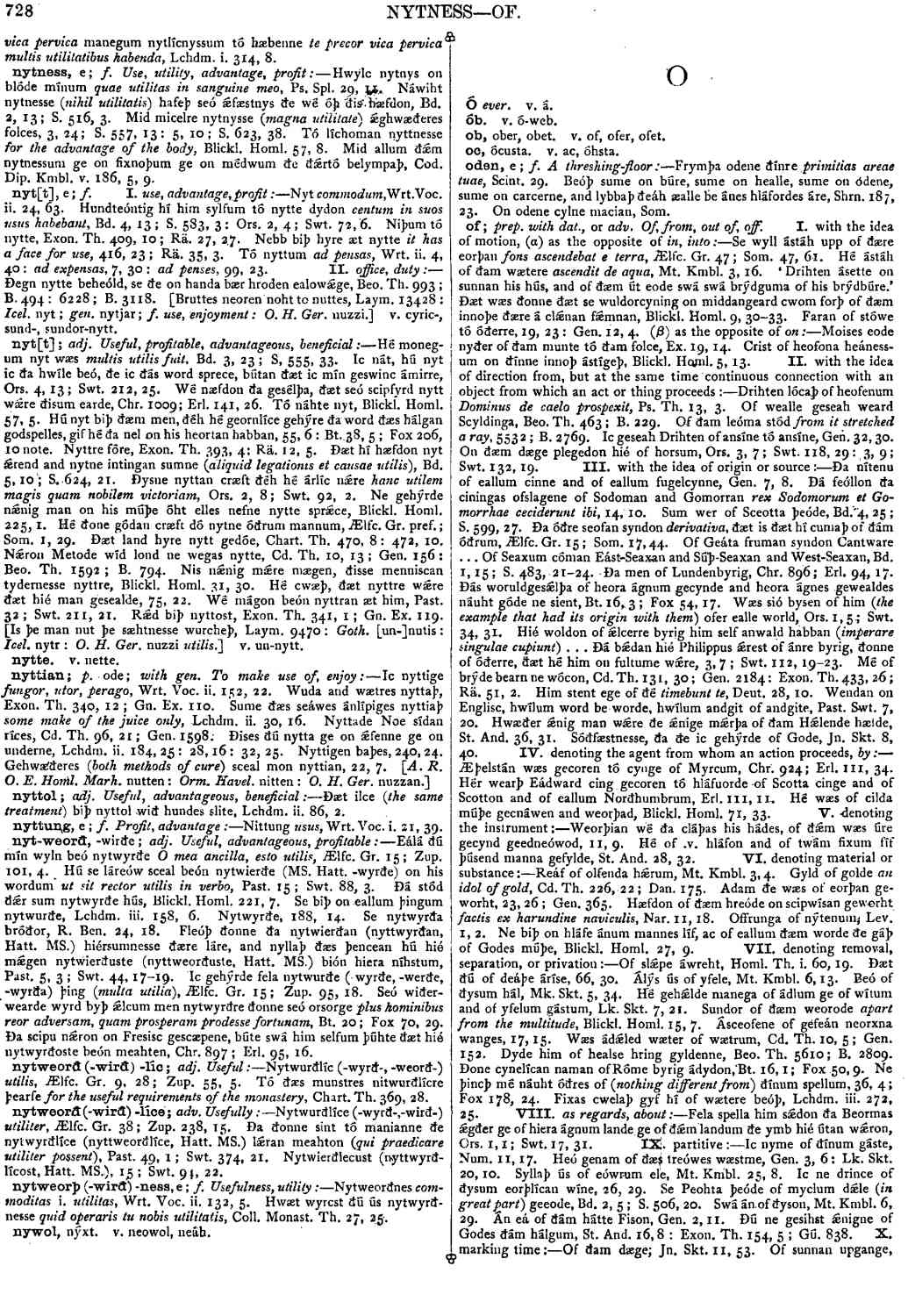nytt
- adjective
-
Hé monegum nyt wæs
multis utilis fuit,
- Bd. 3, 23 ;
- S. 555, 33.
-
Ic nát, hú nyt ic ða hwíle beó, ðe ic ðás word sprece, bútan ðæt ic mín geswinc ámirre,
- Ors. 4, 13 ;
- Swt. 212, 25.
-
Wé næfdon ða gesélþa, ðæt seó scipfyrd nytt wǽre ðisum earde,
- Chr. 1009 ;
- Erl. 141, 26.
-
Tó náhte nyt,
- Blickl. Homl. 57. 5.
-
Hú nyt biþ ðæm men, ðéh hé geornlíce gehýre ða word ðæs hálgan godspelles, gif hé ða nel on his heortan habban,
- 55, 6 : Bt. 38, 5 ;
- Fox 206, 10 note.
-
Nyttre fóre,
- Exon. Th. 393, 4 ;
- Rä. 12, 5.
-
Ðæt hí hæfdon nyt ǽrend and nytne intingan sumne (
aliquid legationis et causae utilis
),- Bd. 5, 10 ;
- S. 624, 21.
-
Ðysne nyttan cræft ðéh hé árlíc nǽre
hanc utilem magis quam nobilem victoriam,
- Ors. 2, 8 ;
- Swt. 92, 2.
-
Ne gehýrde nǽnig man on his múþe óht elles nefne nytte sprǽce,
- Blickl. Homl. 225, 1.
-
Hé ðone gódan cræft dó nytne óðrum mannum,
- Ælfc. Gr. pref. ;
- Som. 1, 29.
-
Ðæt land hyre nytt gedóe,
- Chart. Th. 470, 8 : 472, 10.
-
Nǽron Metode wíd lond ne wegas nytte,
- Cd. Th. 10, 13 ;
- Gen. 156 : Beo. Th. 1592 ;
- B. 794.
-
Nis nǽnig mǽre mægen, ðisse menniscan tydernesse nyttre,
- Blickl. Homl. 31, 30.
-
Hé cwæþ, ðæt nyttre wǽre ðæt hié man gesealde,
- 75, 22.
-
Wé mágon beón nyttran æt him,
- Past. 32 ;
- Swt. 211, 21.
-
Rǽd biþ nyttost,
- Exon. Th. 341, 1 ;
- Gn. Ex. 119.
Bosworth, Joseph. “nytt.” In An Anglo-Saxon Dictionary Online, edited by Thomas Northcote Toller, Christ Sean, and Ondřej Tichy. Prague: Faculty of Arts, Charles University, 2014. https://bosworthtoller.com/23963.
Checked: 1